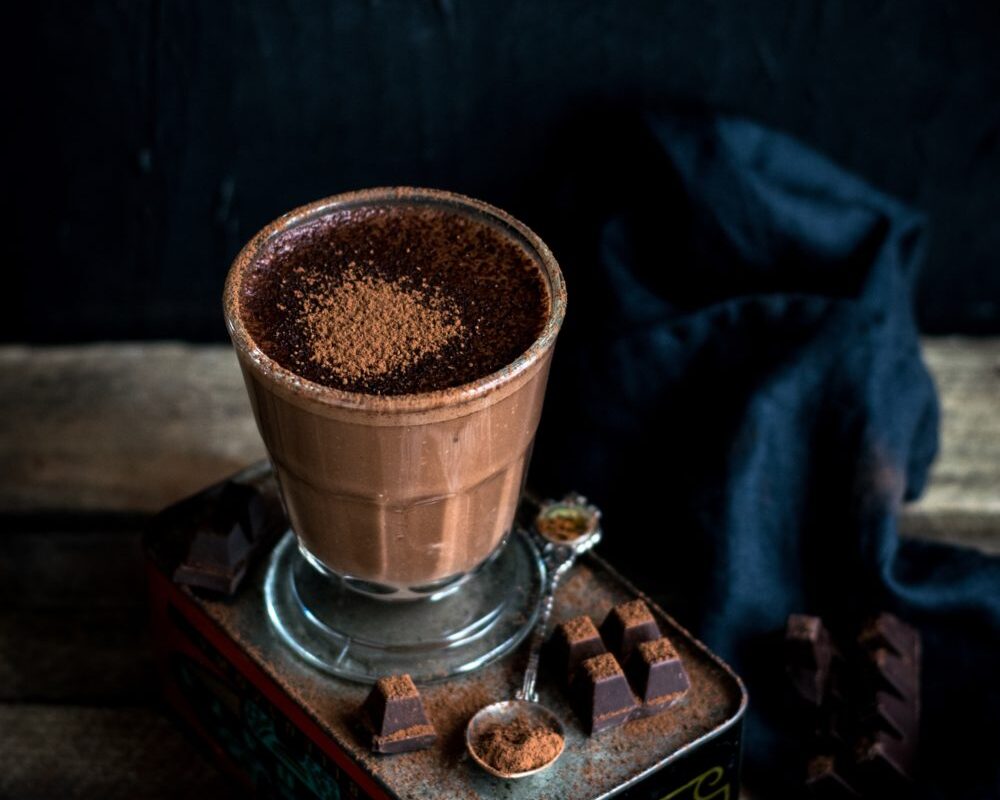“All I need is love, but a little chocolate now and then doesn’t hurt,” American cartoonist Charles Schulz had famously remarked; ‘now and then’ being the imperative term in that sentence, especially when it comes to your health. There is something so universally fulfilling about chocolate—its smell, texture and taste all result in a satiated feeling. So when science starts to term it as the superfood that can mitigate the effects of modern-day lifestyle malaise, it seems too good to be true.
Wait a bit before you order that hot chocolate fudge though, or open a tub of chocolate ice cream for some guilt-free binging—there’s a catch here. To take the sin-free route, you have to cross over to the dark side.
Dark chocolate contains antioxidants called flavonoids, which are plant-derived compounds that are responsible for a number of potential health benefits. “Rich in iron, copper, magnesium, zinc, phosphorous, flavanols and selenium, it improves blood pressure and protects against oxidation, thereby reducing your risk of a stroke,” states Shalini Garwin Bliss, chief dietician at Columbia Asia Hospital, Gurgaon. Improved oxygen supply to the brain results in better cognitive functioning as well.
Studies show that dark chocolate could improve stress levels, inflammation, mood, memory and even immunity. And if you are anaemic, add a small portion of dark chocolate alongside the copious amounts of spinach and beetroot that you are consuming. It helps to reverse mild cases of iron deficiency.

According to the preliminary findings of the research conducted by Jeff C Rabin, from the University of the Incarnate Word Rosenberg School of Optometry in San Antonio, Texas, the benefits of dark chocolate might extend to improved vision. The international community of scientists and doctors are also working on its role in cancer prevention. “Milk chocolate contains milk powder or condensed milk. White chocolate contains cocoa butter, sugar and milk, but no cocoa solids. But dark chocolate is a form of chocolate that contains a higher content of cocoa and lesser milk than other forms of chocolate, and that’s what makes it the healthiest option,” adds Garwin.
How much dark chocolate is good for your health?
Blake Lively had once confessed that she eats a few dark chocolate squares daily and doesn’t feel the need to hire a trainer to stay in shape. Now here’s a secret to weight management that no one will mind; regularly consume dark chocolate. It improves body metabolism, controls appetite and food cravings, and inhibits insulin resistance. Flavonoids present in dark chocolate decrease the body fat too. The caveat lies in swapping the regular desserts for a bit of dark chocolate.
How much ‘dark’ is dark enough for guilt-free indulgences? Experts unanimously agree that while shopping for chocolates, read the labels and go for something that’s 70 per cent cocoa or higher. “Dark chocolate typically contains between 70 per cent to 99 per cent pure cocoa or cocoa solids. Cocoa is naturally bitter and very strong-tasting. The higher the cocoa in dark chocolate, the better it is for health, as cocoa is rich in antioxidants—flavanols and polyphenols,” explains Dr Harpreet Pasricha, nutritionist and diet consultant.
But you can’t really go after the entire bar and still dream of losing weight. “Dark chocolate does contain antioxidants, but it also has sugar and fat; so maintain portion control. Just like a salad or fruit, it may be healthy, but you cannot overindulge. The key is moderation. In order to reap the benefits of antioxidants, have two or three squares of dark chocolate (70 per cent cocoa and above) in a day,” advises Pasricha.
Read the fine print on your bar of chocolate

To draw the best of nutritional benefits of dark chocolate, another aspect, besides the percentage, should be considered—its cacao content. No, it’s not cocoa spelt wrongly. Much like the organic food section, cold-pressed is the way to go to keep the nutrition intact, even in chocolates. So raw cacao powder is made by cold-pressing non-roasted cocoa beans. This process keeps the enzymes in the cocoa and removes the fat. Cocoa powder is derived from cocoa beans that have been roasted at high temperatures. Roasting changes the molecular structure of the cocoa bean, reducing the enzyme content and lowering the overall nutritional value. So when you read of studies that talk about the amazing benefits of chocolate, keep in mind that the chocolate they are referring to has properties closer to those of raw cacao.
Dark chocolate and its benefits for your skin
A piece of dark chocolate might be the answer to your acne woes. “Dark chocolate or cocoa contains between 12 to 15 per cent of magnesium in 20 grams of serving. Patients with acne have a higher insulin resistance and magnesium reduces the insulin resistance. So, a daily intake of up to 20 grams of dark chocolate can visibly improve acne,” states Dr Satish Bhatia, Mumbai-based dermatologist and cutaneous surgeon.
Cocoa powder is packed with antioxidants, repairs skin cells and rejuvenates them, and finds its way in many skincare products. “It is a skin-friendly ingredient and I often use it as a key ingredient in my soap variants,” says Sharmeen Fathima, founder, Chennai Soap Company, where all products are derived from organic vegetable oils and pure essential oils.
Flavanols are the anti-ageing compound present in dark chocolate—they work by fighting against free radicals. They protect against sun-induced damage, improve blood flow to the skin and increase skin density and hydration. They increase circulation in the skin too, and improve its ability to retain moisture, which in turns helps to reduce wrinkles.
Dark chocolate could also improve your sex life
The popular imagery of romance with roses, candlelight and chocolate is more than just an advertising gimmick, if recent researchers have to be believed. Chocolate is now being revered even in the scientific circles for its aphrodisiac qualities, because of the two chemicals it contains. One of them is tryptophan, a building block of serotonin and one of the chemicals involved in sexual arousal. The other, phenylethylamine is a stimulant related to amphetamine, and is released in the brain when people fall in love.
Mumbai-based Dr Rohann Bokdawala, consultant neuropsychiatrist, de-addiction specialist and sexologist, agrees that it increases libido. “Dark chocolate makes our brain secrete dopamine, which is a mood elevator and enhances our feelings throughout the day. It’s a great aphrodisiac, especially for women.” Why women? Bokdawala explains,
“It has phenylethylamine, which in turn secretes dopamine, leading to enhanced sexual desire. In women the response is a tad quicker because, for them sex has a lot to do with the overall mood.”
Ditch the heart-shaped candies and the sweeter chocolate variants for the darkest of them all, if you want to make your partner’s heart beat a tad bit faster. In fact, it wouldn’t hurt to choose a cacao chocolate spiked with some chillies to really heat things up.
A word of caution: avoid having dark chocolate in the night, as the caffeine content present in it can keep you awake… unless the intention is to stay awake or stimulate your senses. Then, by all means, go ahead and take a bite.

The article was first published in vogue.in





